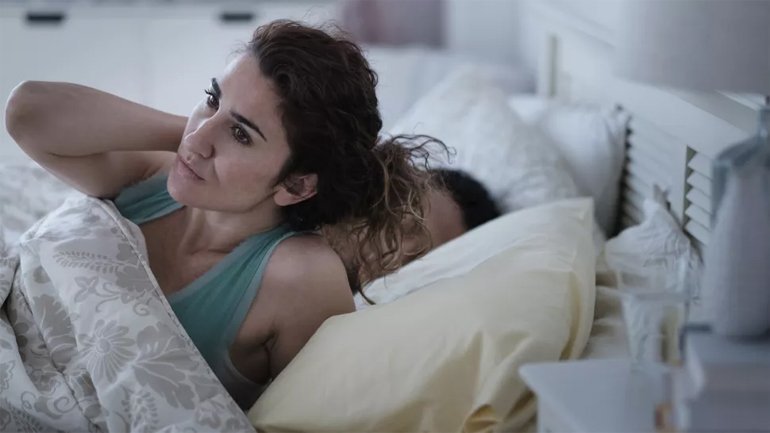We have already mentioned who needs to sleep and how much sleep in our article here. But how much do we know what are the things that disturb our sleep or reduce its quality?
Especially in the post-COVID world, there are many sleep killers waiting to disrupt your night’s sleep. But Emma Sleep neurobiologist and Head of Sleep Research Dr. As Verena Senn explains, if you can spot some of the biggest ones, you can start fighting.
First, if you are experiencing stress or anxiety, your sleep patterns will be disrupted and your sleep quality will be affected. Another thing that raises the problem is that a lack of sleep can worsen any anxiety you may have. This can lead to a vicious cycle of stress and insomnia.
Dr. Senn suggests meditation before bed as a way to combat anxious feelings. Because slower, more controlled breathing can bypass the sympathetic nervous system and activate the body’s parasympathetic nervous system.
Dr. “Regular meditation practice also helps you relax by increasing the concentration of the brain’s ‘tranquilizer’ (neurotransmitter GABA),” explains Senn.
While a quick, short nap may seem like a good compensation for the time you haven’t been able to sleep at night, especially since it can improve everything from your focus to your mood, you can still be mindful.
Frequent naps – or daytime naps that take too long – can cause more problems than they solve, disrupt your nighttime sleep patterns and make it harder to fall asleep when you want to.
Dr. “These problems usually occur when naps last longer than 20 minutes. A quick 20-minute nap can give you an extra boost of alertness, while after that you start to move into deeper stages of sleep, which can make you feel dizzy when you wake up,” says Senn.
Caffeine is one of the biggest sleep disruptors, and while a coffee after dinner or a cup of tea before bed is a ritual for many people, it’s one of the worst things you can do for your sleep. This is because caffeine blocks processes in the brain that allow our bodies to identify signs of fatigue (and sleep cues).
While caffeine affects everyone differently, some studies say that consuming caffeine even six hours before bed can shorten your sleep time by an hour. That’s why it’s a good idea to stay away from caffeine at least a few hours before going to bed.
To help you feel more alert in the morning, you might consider using a wake-up light, especially during the colder, darker months.
Regular exercise is vital to good physical and mental health and while it leads to better sleep and recovery, it’s essential that you do it at the right time of the day. Because physical exertion raises the body’s core temperature, this is the opposite of what your body needs when trying to sleep.
Dr. “Don’t exercise before bed—that’s something you really shouldn’t do,” says Senn. “Exercise should be done from morning to afternoon to give your body plenty of time to cool down before bed,” she explains.
Intense exercise at night may not be recommended, but research shows that gentle stretching as part of your bedtime routine can relax you before bed.
If you want to increase your chances of a great night’s sleep, it’s not just your body temperature you need to monitor. If your bedroom is too hot, your body will not cool down the way it needs for better sleep.
The body’s internal temperature fluctuates, often peaking in the early morning and afternoon, but should cool down significantly when sleep comes. To support this, it is important that you keep the temperature of your bedroom around 15.5 – 19°C.
Some of the more advanced sleep trackers are designed to monitor your temperature throughout the night, and these products can help you discover if being too hot while you sleep is one of your biggest concerns.
 Getty
GettyOne of the most obvious but overlooked issues when it comes to getting the sleep you need is your mattress, and having the most suitable mattress for you can significantly improve the quality of your night’s sleep.
“It’s important to consider how your hips, legs, and head are generally positioned and how these areas are supported while you sleep, to ensure that none of these areas are strained,” says Dr Senn. It can also affect your health more broadly. I recommend foam mattresses. They’re lightweight and easy to carry, and offer great support.”
Since our circadian rhythms are linked to the four phases of the lunar cycle, it is known that the Moon can also affect sleep patterns. When the moon is full and brightest, it can stimulate an increase in the stress hormone cortisol, which keeps us awake by suppressing the production of the sleep-inducing hormone melatonin.
Studies examining how moon phases affect sleep show that people sleep less efficiently and less deeply just before and during the full moon.
“Looking at blue screens on electronic devices in the hours before bed can have the same effect, so try to avoid them,” says Dr Senn.